ALPSS Outreach Hub
Division of Arts, Law, Psychological and Social Sciences (ALPSS) Outreach Hub
Te Wānanga o Ngā Kete the Division of Arts, Law, Psychological and Social Sciences offers a wide range of mini-lectures for schools and community groups throughout regions within New Zealand.
Our staff and students are always looking for new opportunities to share their love of all things Arts, Law, Psychology and Social Sciences. We want to help inspire the next generation of budding humanitarians, and law makers!
Arts
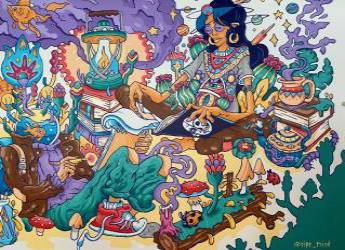
Description: Arts provide us with new ways of understanding our world and studying the arts helps us learn how to contribute and to be response-able members of our communities. Arts also offer ways to nurture our wellbeing and that of others.
NCEA Curriculum supported: The Arts
Regions covered: Waikato and Bay of Plenty
Artist credit: @ripe_mind (Tony Diaz), @boonartshamilton (Boon Arts)
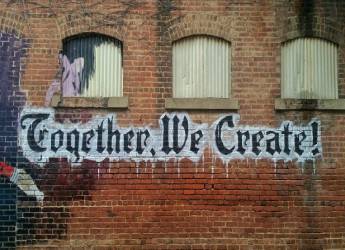 Description: Our world is permeated by arts, languages and cultures that reflect the rich diversity of who we are and where we live. In Te Kura Toi, we foster knowledge and creativity, sharing unique experiences and stories with the world.
Description: Our world is permeated by arts, languages and cultures that reflect the rich diversity of who we are and where we live. In Te Kura Toi, we foster knowledge and creativity, sharing unique experiences and stories with the world.
NCEA Curriculum supported: The Arts and Languages
Regions covered: Waikato and Bay of Plenty
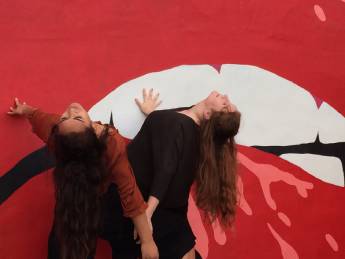 Description: Dance is a way of knowing ourselves, each other and the world. Creative practice teaches us ways of sharing our unique stories and expressing our cultural experiences beyond synchronised steps. Dancing is knowing.
Description: Dance is a way of knowing ourselves, each other and the world. Creative practice teaches us ways of sharing our unique stories and expressing our cultural experiences beyond synchronised steps. Dancing is knowing.
NCEA Curriculum supported: The Arts and Dance
Regions covered: Waikato and Bay of Plenty
 Description: At Waikato our students are encouraged and mentored in the creation of original performances. Learn to write, devise, direct and perform in a theatre or dance setting. Learn directly from performers that are leaders in their field and have performed internationally.
Description: At Waikato our students are encouraged and mentored in the creation of original performances. Learn to write, devise, direct and perform in a theatre or dance setting. Learn directly from performers that are leaders in their field and have performed internationally.
NCEA Curriculum supported: Theatre, Drama, Dance
Regions covered: Bay of Plenty, Waikato, Auckland
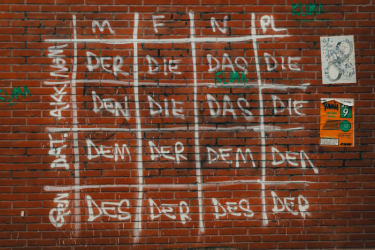 Description: Language is the most unique human trait we possess. It is the way we build a view of the world around us, the way we make friends and present our unique selves to others (in person or online). Come to this talk to find out more about the power of language.
Description: Language is the most unique human trait we possess. It is the way we build a view of the world around us, the way we make friends and present our unique selves to others (in person or online). Come to this talk to find out more about the power of language.
NCEA Curriculum supported: All things communication and language related such as English, Chinese, French, Japanese, Korean, Latin, Cook Island Māori, Māori, Media Studies, Digital technologies.
Regions covered: Waikato
 Description: Cultural competence and language skills are vital for travel, business and trans-cultural partnerships. Consider the benefits of adding cultural knowledge and language skills in Korean, Chinese, Japanese, Spanish or French to your studies.
Description: Cultural competence and language skills are vital for travel, business and trans-cultural partnerships. Consider the benefits of adding cultural knowledge and language skills in Korean, Chinese, Japanese, Spanish or French to your studies.
NCEA Curriculum supported: Languages, Business, Politics, Social Studies
Regions covered: Bay of Plenty, Waikato, Auckland
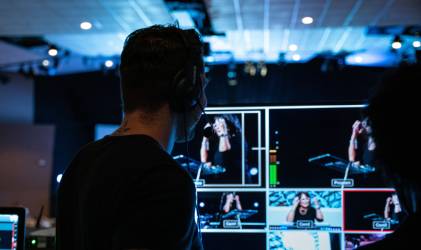 Description: An overview of media production and paper options for our Major in Screen and Media, including a short video production exercise.
Description: An overview of media production and paper options for our Major in Screen and Media, including a short video production exercise.
NCEA Curriculum supported: Art, Media, Design
Regions covered: Waikato
 Description: Waikato offers a range of study pathways that combine design, media and communication. Core to all of them is creative problem solving and design thinking to persuade, educate, reassure, influence and change behaviours. Learn how the psychology of design is embedded in our approach and application of media, communication and design skills.
Description: Waikato offers a range of study pathways that combine design, media and communication. Core to all of them is creative problem solving and design thinking to persuade, educate, reassure, influence and change behaviours. Learn how the psychology of design is embedded in our approach and application of media, communication and design skills.
NCEA Curriculum supported: All forms of Technology Design, Computer Coding, Media Studies, Graphic Design, Psychology
Regions covered: Waikato, Bay of Plenty, Auckland
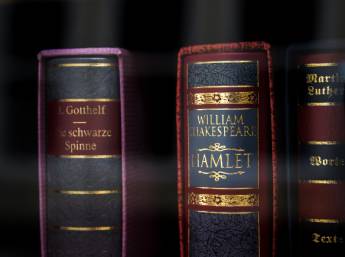 Description: What do we now know about Shakespeare; and what is the surviving evidence for his life and works? In this talk, I’ll survey visual and manuscript sources for studying Shakespeare. For specific schools, I can include extra commentary on specific plays or poems being studied. In the 'Book Now' form, include the plays or poems you are currently studying.
Description: What do we now know about Shakespeare; and what is the surviving evidence for his life and works? In this talk, I’ll survey visual and manuscript sources for studying Shakespeare. For specific schools, I can include extra commentary on specific plays or poems being studied. In the 'Book Now' form, include the plays or poems you are currently studying.
NCEA Curriculum supported: English
Regions covered: Waikato and Bay of Plenty
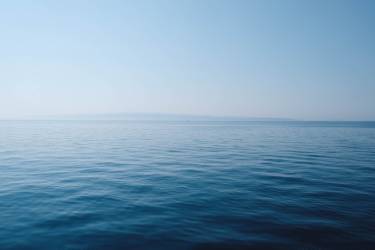 Description: Contemporary Pacific Island poets have written powerful critiques of climate change and poignant descriptions of sea-level rise. Mixing discussions of Pacific activism with their poetic call for actions, we will look at the poetic strategies Pacific writers use to empower and protect their communities.
Description: Contemporary Pacific Island poets have written powerful critiques of climate change and poignant descriptions of sea-level rise. Mixing discussions of Pacific activism with their poetic call for actions, we will look at the poetic strategies Pacific writers use to empower and protect their communities.
NCEA Curriculum supported: English
Regions covered: All throughout the North Island
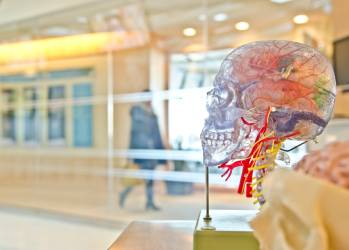 Description: This session introduces you to an exciting area of study you might not know: the medical humanities. We will discuss what the blending of medicine and the humanities might mean, how the working together of the arts and sciences can give us new insights into our bodies, health and care, and how the metaphors people use for illness can impact the way they experience being ill.
Description: This session introduces you to an exciting area of study you might not know: the medical humanities. We will discuss what the blending of medicine and the humanities might mean, how the working together of the arts and sciences can give us new insights into our bodies, health and care, and how the metaphors people use for illness can impact the way they experience being ill.
NCEA Curriculum supported: English, Science, Health
Regions covered: All throughout the North Island
 Description: Certain types and periods of literature can seem intimidating and some authors have the reputation for being extremely challenging. In this talk we will discuss strategies for dealing with difficult texts by grappling with passages by Virginia Woolf, so that you can hone your skills at unpacking meaning and taming complexity.
Description: Certain types and periods of literature can seem intimidating and some authors have the reputation for being extremely challenging. In this talk we will discuss strategies for dealing with difficult texts by grappling with passages by Virginia Woolf, so that you can hone your skills at unpacking meaning and taming complexity.
NCEA Curriculum supported: English
Regions covered: All throughout the North Island
 Description: This presentation will focus on our personal stories about food, and how to convey memory vividly in our writing. It will involve an in-class tasting and writing exercise.
Description: This presentation will focus on our personal stories about food, and how to convey memory vividly in our writing. It will involve an in-class tasting and writing exercise.
NCEA Curriculum supported: English
Regions covered: Waikato and Auckland - based in Auckland
 Description: How do you approach a poem you have never seen before, and how do you write well about it?
Description: How do you approach a poem you have never seen before, and how do you write well about it?
NCEA Curriculum supported: English
Regions covered: Waikato and Auckland - based in Auckland
 Description: Charlotte Brontë famously dismissed Jane Austen’s writing as providing a passionless picture of a ‘confined’ world, while holding up her sister Emily’s Wuthering Heights as an example of a novel that grappled with fierce emotions. But are the works of these authors as far apart as Charlotte claims? Exploring the works of the Brontës and Austen through a feminist lens, this talk contends that we encounter radical voices speaking of the female right to autonomy, visibility, and love.
Description: Charlotte Brontë famously dismissed Jane Austen’s writing as providing a passionless picture of a ‘confined’ world, while holding up her sister Emily’s Wuthering Heights as an example of a novel that grappled with fierce emotions. But are the works of these authors as far apart as Charlotte claims? Exploring the works of the Brontës and Austen through a feminist lens, this talk contends that we encounter radical voices speaking of the female right to autonomy, visibility, and love.
NCEA Curriculum supported: English
Regions covered: Waikato, Bay of Plenty and Auckland
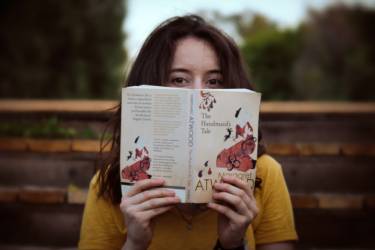 Description: Dystopian texts intersect with so many of the issues we grapple with: surveillance, reliance on technology, abuses of power, divided societies, the degradation of the environment. These texts also provide a road map for navigating the challenges and crises we confront, articulating messages of both resistance and hope. This discussion could either explore the wider genre aspects, or focus on a key text such as 1984, The Handmaid’s Tale, or The Hunger Games.
Description: Dystopian texts intersect with so many of the issues we grapple with: surveillance, reliance on technology, abuses of power, divided societies, the degradation of the environment. These texts also provide a road map for navigating the challenges and crises we confront, articulating messages of both resistance and hope. This discussion could either explore the wider genre aspects, or focus on a key text such as 1984, The Handmaid’s Tale, or The Hunger Games.
NCEA Curriculum supported: English
Regions covered: Waikato, Bay of Plenty and Auckland
 Description: Does the thought of grappling with the Unfamiliar Texts section of the exam make you anxious? This interactive talk is designed to help you transform anxiety into confidence, providing both tips for approaching this assessment and some examples to workshop together.
Description: Does the thought of grappling with the Unfamiliar Texts section of the exam make you anxious? This interactive talk is designed to help you transform anxiety into confidence, providing both tips for approaching this assessment and some examples to workshop together.
NCEA Curriculum supported: English
Regions covered: Waikato, Bay of Plenty and Auckland
Law
 Description: This mini lecture will explore the range of unique degrees and diplomas offered at Waikato for students who are interested in studying law.
Description: This mini lecture will explore the range of unique degrees and diplomas offered at Waikato for students who are interested in studying law.
NCEA Curriculum supported: Legal Studies.
Regions covered: Waikato and Auckland
 Description: What laws should regulate human settlements on Mars? How would we ensure that individuals human rights are protected outside Earth? How would we ensure 'law and order' in new human settlements?
Description: What laws should regulate human settlements on Mars? How would we ensure that individuals human rights are protected outside Earth? How would we ensure 'law and order' in new human settlements?
NCEA Curriculum supported: Legal Studies - specialising in Human Rights and International Humanitiarian Law.
Regions covered: Waikato.
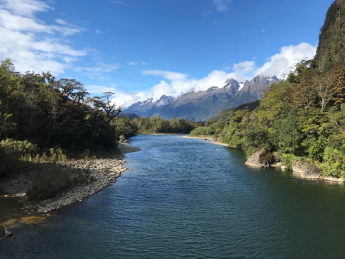 Description: Rights have been granted to rivers in a number of countries over the past decade. In some cases, this has included an ability to sue people who have caused damage to freshwater ecosystems. Is this the key to saving the world's rivers?
Description: Rights have been granted to rivers in a number of countries over the past decade. In some cases, this has included an ability to sue people who have caused damage to freshwater ecosystems. Is this the key to saving the world's rivers?
NCEA Curriculum supported: Legal Studies - specialising in Water Law.
Regions covered: Waikato, Cambridge, Auckland, and Bay of Plenty.
 Description: Are you interested in becoming a lawyer? If so, it's time to start thinking like one. Can you separate relevant facts from irrelevant detail? Can you craft logical and persuasive arguments? Can you focus on specifics, while remembering the broader context? This mini lecture will introduce you to key skills law students will need to master, to become successful lawyers in the future.
Description: Are you interested in becoming a lawyer? If so, it's time to start thinking like one. Can you separate relevant facts from irrelevant detail? Can you craft logical and persuasive arguments? Can you focus on specifics, while remembering the broader context? This mini lecture will introduce you to key skills law students will need to master, to become successful lawyers in the future.
NCEA Curriculum supported: Legal Studies - specialising in Legal Method and Jurisprudence.
Regions covered: Nationwide.
 Description: Whether social justice, the environment, excelling in business, animal welfare, protecting people's rights, agriculture, health, international relations, self determination, protecting the innocent or pursuing the guilty are your passions, if you are interested in being not just a player, but also an architect, rule maker or umpire in Aotearoa/New Zealand's society, a career in law might be for you.
Description: Whether social justice, the environment, excelling in business, animal welfare, protecting people's rights, agriculture, health, international relations, self determination, protecting the innocent or pursuing the guilty are your passions, if you are interested in being not just a player, but also an architect, rule maker or umpire in Aotearoa/New Zealand's society, a career in law might be for you.
NCEA Curriculum supported: Legal Studies - specialising in Public Law, Jurisprudence/Legal Theory, Animal Law, Comparative Law, Death Penalty Appeals, Artificial Intelligence.
Regions covered: Waikato, Bay of Plenty, and King Country.
 Description: New ways to reduce greenhouse gas emissions can raise some interesting legal questions. This talk will take carbon capture and storage as an example of how people with legal skills can help combat climate change.
Description: New ways to reduce greenhouse gas emissions can raise some interesting legal questions. This talk will take carbon capture and storage as an example of how people with legal skills can help combat climate change.
NCEA Curriculum supported: Legal Studies - specialising in Environmental and Energy Law.
Regions covered: Waikato
 Description: If you are a social media influencer or currently building up your following, the posts and content you create are likely to be protected by intellectual property law. This lecture will explore the different legal rights that protect content and enable you to protect your brand.
Description: If you are a social media influencer or currently building up your following, the posts and content you create are likely to be protected by intellectual property law. This lecture will explore the different legal rights that protect content and enable you to protect your brand.
NCEA Curriculum supported: Legal Studies - specialising in Intellectual Property.
Regions covered: Waikato
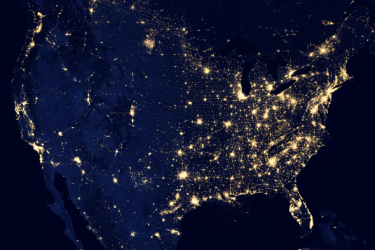 Description: The internet has transformed the way we live work and play, and most countries have begun an ongoing legislative, regulatory and policy response to the impact of online technological developments. In other words, the law is coming to the website, game or metaverse near you. This mini-lecture will introduce how New Zealand law is impacting on our online lives now and in the near future and outline some of the challenges to regulating a virtual environment that traverses across jurisdictions.
Description: The internet has transformed the way we live work and play, and most countries have begun an ongoing legislative, regulatory and policy response to the impact of online technological developments. In other words, the law is coming to the website, game or metaverse near you. This mini-lecture will introduce how New Zealand law is impacting on our online lives now and in the near future and outline some of the challenges to regulating a virtual environment that traverses across jurisdictions.
NCEA Curriculum supported: Legal Studies - specialising in Law and Technology.
Regions covered: Waikato and Auckland
 Description: An exploration of recent New Zealand cybercrime cases and how the law is responding to an increasingly virtual criminal environment and what the hackers, crackers, phreakers, stalkers and scammers are doing to avoid it.
Description: An exploration of recent New Zealand cybercrime cases and how the law is responding to an increasingly virtual criminal environment and what the hackers, crackers, phreakers, stalkers and scammers are doing to avoid it.
NCEA Curriculum supported: Legal Studies - specialising in Law and Technology.
Regions covered: Waikato and Auckland
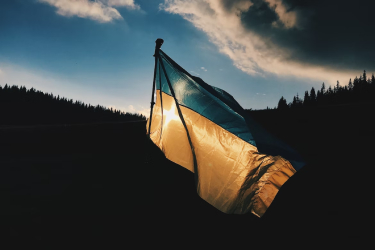 Description: Fast forward to 2023 and former President Putin is arrested while on holiday in New Zealand. Can he be charged with an international crime and extradited to the Ukraine to stand trial? This mini lecture will explore the parallels between this future possibility and the real life fast-paced story of President Pinochet and attempts through the administrative courts to extradite him to Chile.
Description: Fast forward to 2023 and former President Putin is arrested while on holiday in New Zealand. Can he be charged with an international crime and extradited to the Ukraine to stand trial? This mini lecture will explore the parallels between this future possibility and the real life fast-paced story of President Pinochet and attempts through the administrative courts to extradite him to Chile.
NCEA Curriculum supported: Legal Studies
Regions covered: Waikato and Auckland
Psychology
 Description: A human infant isn’t what springs to mind when you think of the discipline of Psychology. People are more likely to have a mental picture of Sigmund Freud – even though he was actually a psychiatrist. But a baby can tell you everything that you need to know about Psychology. Key foundational aspects of Psychology include the brain, thinking and cognition, behaviour, perception and sensory function, social understanding, and how development works. In this talk, we touch on all these things and show you how they interact to create the wonderful, complex thing that is a human being
Description: A human infant isn’t what springs to mind when you think of the discipline of Psychology. People are more likely to have a mental picture of Sigmund Freud – even though he was actually a psychiatrist. But a baby can tell you everything that you need to know about Psychology. Key foundational aspects of Psychology include the brain, thinking and cognition, behaviour, perception and sensory function, social understanding, and how development works. In this talk, we touch on all these things and show you how they interact to create the wonderful, complex thing that is a human being
NCEA Curriculum supported: Psychology
Regions covered: All throughout the North Island.
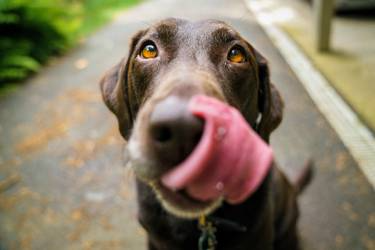 Description: You have probably heard that dogs can detect cancer and do many other incredible things with their noses, but you might wonder how much of this is real and how much of it is exaggeration. In our lab, we use behavioural science principles and methods to explore dogs’ sense of smell and their ability to use this sense to solve problems that are important to humans. One such task is the detection of cancer. In this talk, we showcase our research on lung cancer detection with dogs and discover how dogs and psychological science can help us to develop life-saving technology.
Description: You have probably heard that dogs can detect cancer and do many other incredible things with their noses, but you might wonder how much of this is real and how much of it is exaggeration. In our lab, we use behavioural science principles and methods to explore dogs’ sense of smell and their ability to use this sense to solve problems that are important to humans. One such task is the detection of cancer. In this talk, we showcase our research on lung cancer detection with dogs and discover how dogs and psychological science can help us to develop life-saving technology.
NCEA Curriculum supported: Psychology
Regions covered: All throughout the North Island.
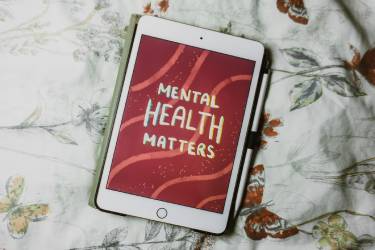 Description: Going for a run sounds like a great way to keep fit. But fitness goes well beyond the size of your calf muscles. In this talk, Dr Medvedev will outline how Psychology is the key to a life well lived. Mental health and physical health are related to each other in all sorts of ways. This guide to wellbeing is essential for anyone interested in the psychological sciences.
Description: Going for a run sounds like a great way to keep fit. But fitness goes well beyond the size of your calf muscles. In this talk, Dr Medvedev will outline how Psychology is the key to a life well lived. Mental health and physical health are related to each other in all sorts of ways. This guide to wellbeing is essential for anyone interested in the psychological sciences.
NCEA Curriculum supported: Psychology and Health.
Regions covered: Waikato and Auckland
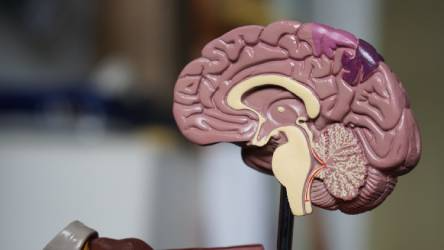 Description: Concussion is one of the most common injuries in young people. Concussion is often thought of as a sport-related injury but most injuries happen off the field. Whilst most people recover quickly, some have more persistent symptoms. This presentation will describe what happens to your brain during a concussion, the symptoms of concussion, how symptoms are assessed, how long it typically takes to recover, and what to expect if you or someone you know has a concussion
Description: Concussion is one of the most common injuries in young people. Concussion is often thought of as a sport-related injury but most injuries happen off the field. Whilst most people recover quickly, some have more persistent symptoms. This presentation will describe what happens to your brain during a concussion, the symptoms of concussion, how symptoms are assessed, how long it typically takes to recover, and what to expect if you or someone you know has a concussion
NCEA Curriculum supported: Psychology
Regions covered: Waikato and Auckland
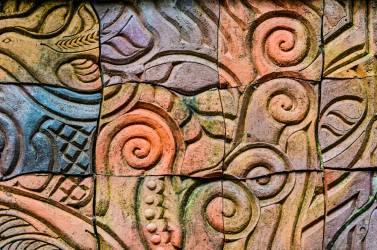 Description: When we hear about Māori health, we often only hear the negatives. However, Māori have a rich knowledge base when it comes to supporting wellbeing that is often ignored when it comes to mainstream health services and the mental health system overall. In this talk, I discuss research from how Māori youth support their wellbeing through the relationships they have to people and the world around them. Through exploring photos that young people took, we think about how their insights could be applied to daily life more generally, so that anyone could come away with something new to try out.
Description: When we hear about Māori health, we often only hear the negatives. However, Māori have a rich knowledge base when it comes to supporting wellbeing that is often ignored when it comes to mainstream health services and the mental health system overall. In this talk, I discuss research from how Māori youth support their wellbeing through the relationships they have to people and the world around them. Through exploring photos that young people took, we think about how their insights could be applied to daily life more generally, so that anyone could come away with something new to try out.
NCEA Curriculum supported: Psychology
Regions covered: Waikato and Auckland
Security and Crime Science
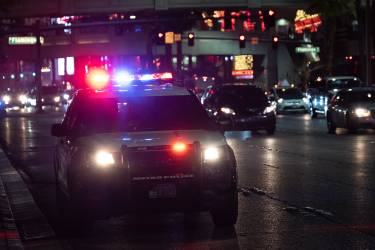 Description: Many widely-held ideas about crime and criminals are shaped by media and emotions rather than evidence. In this workshop, we use knowledge and approaches from Forensic Psychology and Crime Science to explore 10 ideas about crime that are repeatedly sold to us.
Description: Many widely-held ideas about crime and criminals are shaped by media and emotions rather than evidence. In this workshop, we use knowledge and approaches from Forensic Psychology and Crime Science to explore 10 ideas about crime that are repeatedly sold to us.
NCEA Curriculum supported: Psychology, Social Studies, Media Studies
Regions covered: Waikato, Tauranga, Auckland, and online
 Description: Psychopathy is a widely misunderstood form of personality disorder that scientists are still arguing about how to define. In this brief talk I will introduce you to a model of psychopathy and encourage you to think less about serial killers and more about psychopathy in everyday life and whether everything about it really is bad.
Description: Psychopathy is a widely misunderstood form of personality disorder that scientists are still arguing about how to define. In this brief talk I will introduce you to a model of psychopathy and encourage you to think less about serial killers and more about psychopathy in everyday life and whether everything about it really is bad.
NCEA Curriculum supported: Psychology, Social Studies
Regions covered: Waikato and online
 Description: Throughout history, popular studies like the Standford Prison Experiment have shaped how we understand human nature and criminality. But, many of these studies suffer from limitations, and are famous due to media attention rather than scientific merit. In this talk, I will overview the Standford Prison Experiment's method and findings, and in doing so, explore how the experiment is relevant to society and our collective grasp of why seemingly good people do bad things.
Description: Throughout history, popular studies like the Standford Prison Experiment have shaped how we understand human nature and criminality. But, many of these studies suffer from limitations, and are famous due to media attention rather than scientific merit. In this talk, I will overview the Standford Prison Experiment's method and findings, and in doing so, explore how the experiment is relevant to society and our collective grasp of why seemingly good people do bad things.
NCEA Curriculum supported: Psychology, Social Studies, Media Studies
Regions covered: Waikato, Tauranga, Auckland, and online
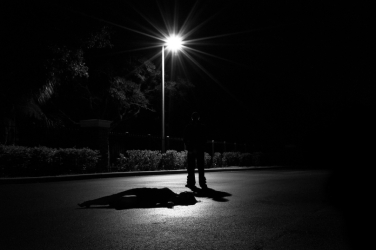 Description: So many of our opinions about crime are shaped by media portrayal and our emotional response to hearing about harms caused. But what if this impression was distorted? In this session we bust 10 myths about crime that are repeatedly sold to us. Once we learn these, we realise that there’s so much more we can do to reduce crime and build pro-social environments.
Description: So many of our opinions about crime are shaped by media portrayal and our emotional response to hearing about harms caused. But what if this impression was distorted? In this session we bust 10 myths about crime that are repeatedly sold to us. Once we learn these, we realise that there’s so much more we can do to reduce crime and build pro-social environments.
NCEA Curriculum supported: Sociology, Social Studies, Media Studies
Regions covered: Waikato and online
Social Sciences
NCEA Curriculum supported: History, Social Studies.
Regions covered: Waikato
Book now>>
NCEA Curriculum supported: History, Social Studies.
Regions covered: Waikato
Book now>>
NCEA Curriculum supported: History, Social Studies.
Regions covered: Waikato
Book now>>
NCEA Curriculum supported: Social Studies.
Regions covered: Waikato
Book now>>
NCEA Curriculum supported: History, Social Studies.
Regions covered: Auckland, Waikato, Wellington
Book now>>
NCEA Curriculum supported: Religious Studies, Social Studies
Regions covered: Waikato
Book now>>
NCEA Curriculum supported: Social Studies
Regions covered: Waikato
Book now>>
NCEA Curriculum supported: Geography, Social Studies
Regions covered: Bay of Plenty and Waikato
Book now>>
NCEA Curriculum supported: Geography, Social Studies
Regions covered: Waikato
Book now>>
NCEA Curriculum supported: Geography, History, Social Studies
Regions covered: Waikato, Bay of Plenty, and Auckland
Book now>>
NCEA Curriculum supported: Geography, Social Studies
Regions covered: Waikato
Book now>>
NCEA Curriculum supported: Media Studies, Social Studies, Photography
Regions covered: Bay of Plenty
Book now>>
NCEA Curriculum supported: Sociology, Social Studies, English, Media Studies
Regions covered: Waikato, Auckland, and Wellington
Book now>>
NCEA Curriculum supported: Social Studies, Media Studies
Regions covered: Hamitlon only
Book now>>